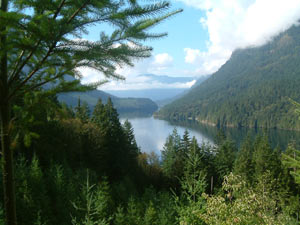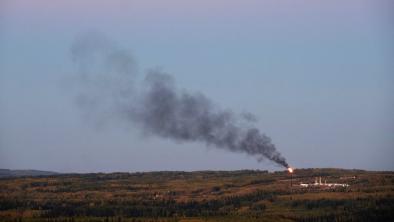Narrows Inlet Hydro Proposal Flooded With Uncertainties

Media Release - October 12, 2012
Unknowns regarding impacts to fish are unacceptable, says Wilderness Committee
SUNSHINE COAST, BC – With the second public comment period underway for the proposed Narrows Inlet Hydro Project, the Wilderness Committee is expressing deep concern about the lack of scientific knowledge about the project’s potential impacts to fish.
Located approximately 50 kilometres north of Sechelt, BC, the proposal consists of five interrelated run-of-river hydro projects centred at the confluence of the Tzoonie River and Tyson Creek.
In the project’s own executive summary, proponent Narrows Inlet Hydro Holdings Corp. admits that there are many unknowns regarding impacts on fish. In numerous sections of the documents submitted to the BC Environmental Assessment Office, the proponent repeatedly acknowledges that there is “uncertainty,” that habitat use “information is not available,” impacts are “poorly understood” or “unknown,” and that there is a “low degree of confidence” in the limited data collected on habitat and fish presence.
The Wilderness Committee believes that the low level of scientific confidence on this project, demonstrated by the proponent’s own submitted materials, is shocking—particularly at this late stage in the environmental assessment process.
“This project shouldn’t be going ahead at all. The proponent needs to go back to the drawing board. A project with this many uncertainties is a recipe for disaster,” said Wilderness Committee Policy Director Gwen Barlee.
“The responsibility of the Environmental Assessment Office is to review projects and work with proponents to mitigate the potential for damage. But how can you mitigate an unknown?” she said.
The provincial government is holding two public open houses focused on the Narrows Inlet Hydro Projects: one this evening, Friday, October 12 in Egmont and another on Saturday, October 13 in Sechelt. The Wilderness Committee’s National Campaign Director Joe Foy will be attending today’s open house in Egmont to share his concerns about the potentially damaging proposal.
“Fish populations in the Tzoonie River and Narrows Inlet have already suffered greatly from earlier industrial projects, such as logging—but we know that watersheds can heal over time if given a chance,” said Foy. “For the provincial government to allow this private hydro project to move forward, with so many information gaps regarding impacts to fish, would be foolhardy in the extreme”.
Another project owned by Narrows Inlet partner Renewable Power Corporation (RPC), the Tyson Creek Hydro Project, has experienced significant environmental problems in the past involving the drawing down of nearby Tyson Lake for storage purposes. Drawing down Tyson Lake released sediment from the lake into downstream waters, and sediment can have a have significant ecological impact on fish. Similar to the Tyson Creek project, the Narrows Inlet proposal also involves plans for “lake storage” and the drawing down of lake waters.
When it comes to private power projects in BC, government documents have already shown that there is "considerable non-compliance with managing flows on operating projects," that "projects are increasingly situated in sensitive fish habitats," and that industry best practices are "inadequate and inappropriately applied". Earlier this year, reports demonstrated that water flow fluctuations caused by run-of-river projects were actually killing fish, and that “the problem is not isolated”.
In addition to these potential environmental impacts, private power developments like the Narrows Inlet Hydro Project represent a substantial financial burden on BC Hydro. Energy purchase agreements granted to private companies have put BC ratepayers on the hook for up to $57 billion, all for expensive power that the province doesn’t need.
—30—
For more information contact:
Joe Foy, National Campaign Director, Wilderness Committee – (604) 880-2580
Gwen Barlee, Policy Director, Wilderness Committee – (604) 202-0322


